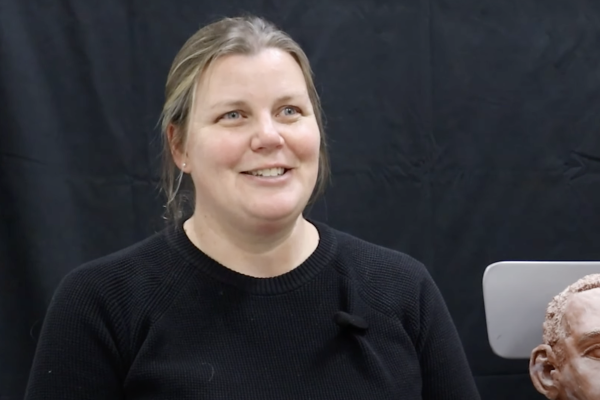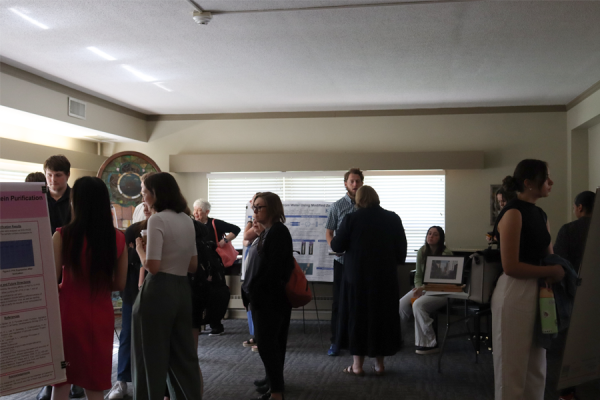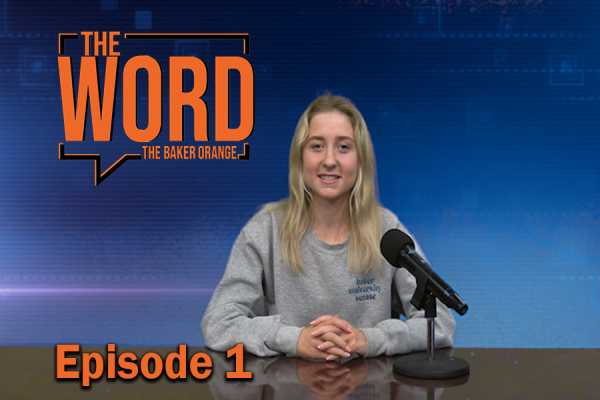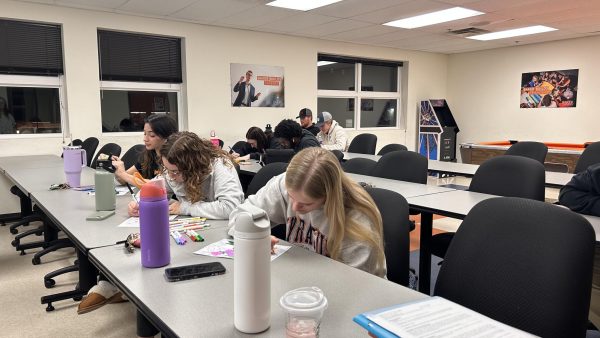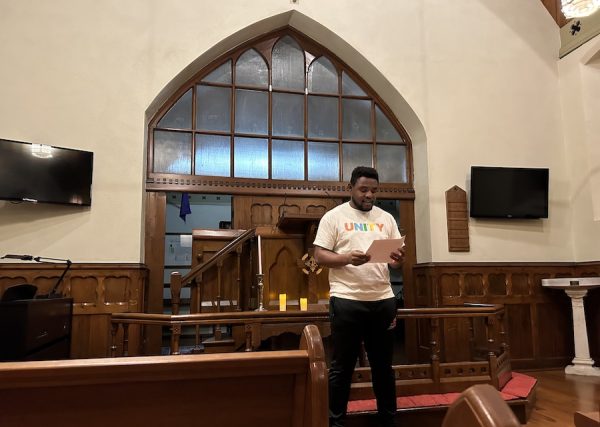Athletic department implements social media policy
September 11, 2013
A 4-0 home tournament sweep for the volleyball team. A victory over the No. 6-ranked team in the nation for men’s soccer. A 25-24 victory over one of football’s biggest rival.
The chatter on social media from Baker student-athletes was full of pride for how well the school’s teams performed this weekend.
Jeremy Gathright, a 2013 national champion track athlete, tweeted after Saturday’s game, “Dopest, most hype BU football game I’ve ever been to. Good job fellas #BTID.”
Positive posts like these are encouraged by the Baker University Athletic Department, but when student-athletes post something that is considered unacceptable, problems arise.
University athletic departments across the nation are cracking down on social media use. Baker’s own athletic department has followed suit, implementing its first social media policy for student-athletes.
According to the policy, which can be found in full on the Baker athletic department website, “student-athletes should recognize that as representatives of our institution they are held to a high standard of behavior.”
Junior E.J. Carter, a member of the men’s basketball team, agrees that as an athlete, unacceptable behavior on social media may provide a negative image for all Baker athletic programs.
“Your average student can probably say whatever they want to say, but considering the fact that we stand for more than just being a student, we stand for Baker athletics and sportsmanship and respect from not only Baker athletics, but (Heart of America Athletic Conference) athletics and NAIA, I feel like there are certain limitations that should be placed on what we do,” Carter said.
With nearly 9,000 Twitter followers and 2,000 Facebook friends, Carter believes that he especially must watch what he posts on public forums.
However, when he arrived at BU in 2012, Carter wasn’t presented any formal policy from the athletic department regarding the content of his personal social media accounts. Head coach Sean Dooley provided guidelines for the team, and that was it.
“Coach pretty much just said that it’s a rule of thumb to be on the safe side,” Carter said. “No matter whether we’re at a small school or a big school, people still recognize you and you still represent a whole organization so just be careful what you say and what you do.”
Director of Athletics Theresa Yetmar says the department wanted to give student-athletes a direction, particularly about what the school expects and which pitfalls to avoid, which led to the creation of the social media policy this year.
“We encourage people to use (social media) appropriately,” Yetmar said. “We don’t want people attacking other programs, other administrators and we prefer that the language stay appropriate. Just use it for what it’s meant for, which I think is just to provide a positive connection between you and whatever your interests are.”
Included in the policy is a list of consequences for student-athletes who violate the code of conduct. Violations can result in a variety of disciplinary actions, ranging from removing the offensive post to the athlete’s dismissal from his or her team.
Although head football coach Mike Grossner informed his players of the new policy and the repercussions that could come from unacceptable behavior, a member of the team recently violated the policy. An offensive tweet from the unnamed player resulted in a one-game suspension, apology to those who were offended and deletion of the material.
“In this case, everybody is fine and happy and we’ve moved on, but it’s an eye-opener,” Grossner said. “In the real world, you can get fired or lose your job, and I think that’s where the real danger is.”
Yetmar agrees that an athlete’s future is at stake when it comes to what is posted on social media. She wants to stress to student-athletes that “every time you put something out on a public forum, it’s not private.”
“The reality is that anything that’s out there is eligible for public consumption,” she said. “We just want to express to our student-athletes that the last thing we want is something you posted when you were a freshman in college to prevent you from getting a job in the real world.“
While Carter says he only uses social media as a source of connection with friends and to promote his side endeavors, he thinks the policy sets much-needed parameters for student-athletes.<br/>
“I don’t think it restricts, but I feel like it regulates, and I feel like we need regulation,” Carter said. “Because a lot of people get on there and start acting crazy, and you don’t want that type of vibe to be given off. You don’t want negativity to be in any sort of way connected with Baker athletics.”
Grossner advises his players to “sit long over your thoughts before you act,” which serves as one of the team’s goals and one that more coaches and teams may adopt after the creation of the new social media policy.



